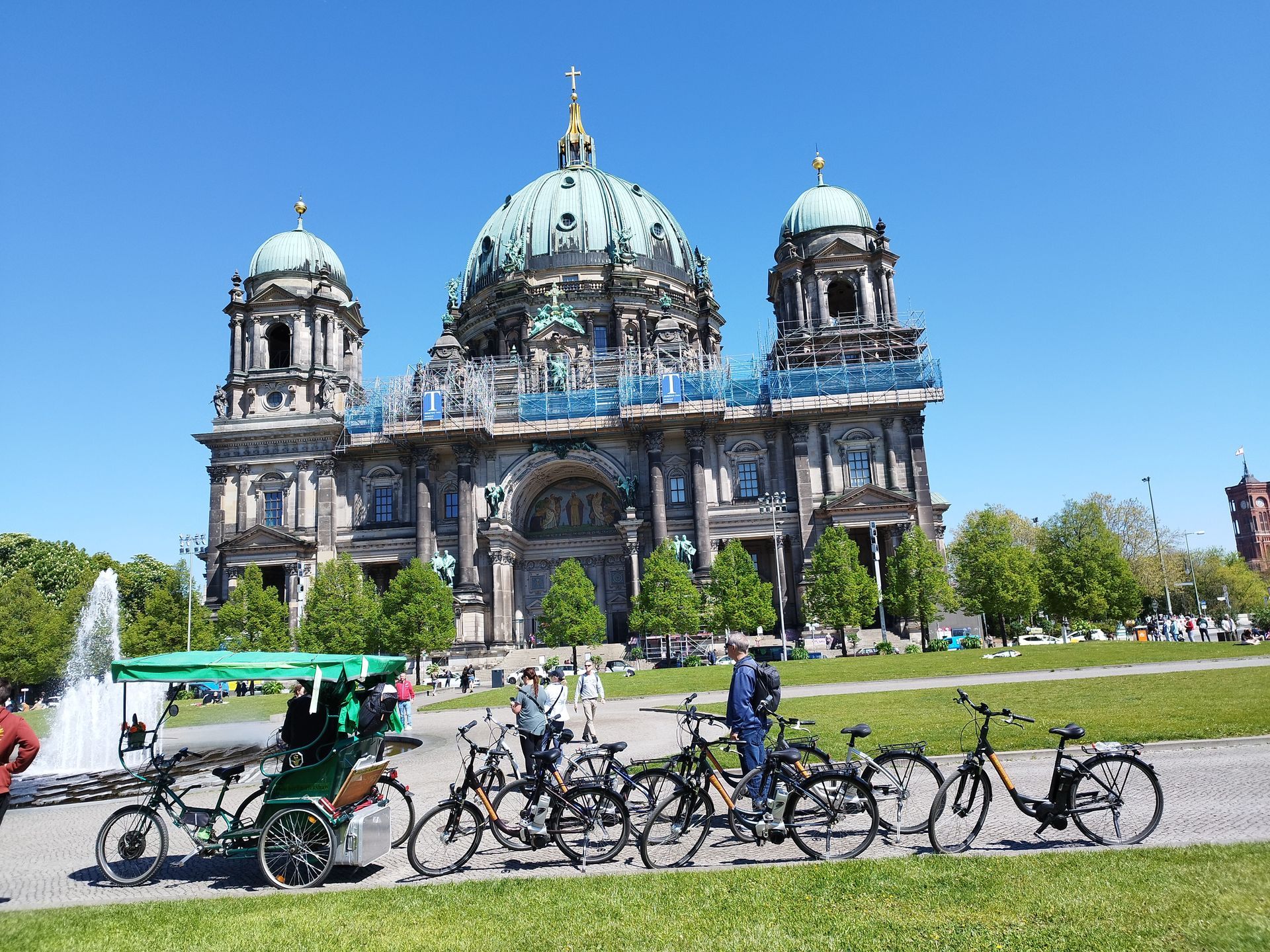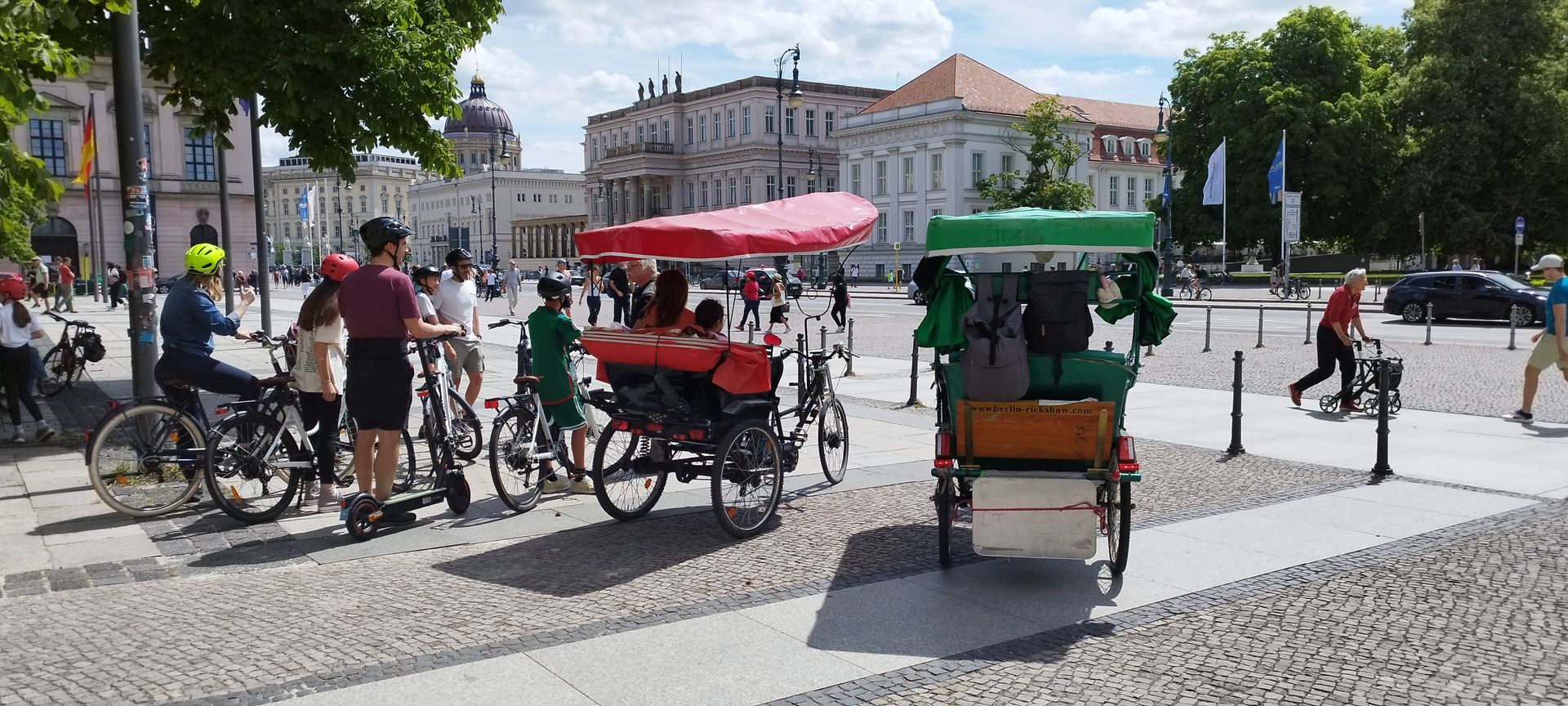Walking Tours in up to public transport / Bike / E-bike / E-scooter / Minivan Whatsapp +49 (0)163 0206 17915% Black Friday Discount Bookings 2025 (until 01-01-2025)
We offer private and daily shared tours in small groups. Our management organization specializes in Berlin tourism and business experiences.
Berlin Excursions
Transportation is a major contributor to global greenhouse gas emissions, mostly from road travel. To reduce these emissions, it is crucial to shift away from car-centric transportation systems and towards more sustainable modes of travel, such as public, shared, and non-motorized transport.
However, convincing people to make this shift requires more than just infrastructure improvements. It also requires a fundamental cultural change around the dominance of cars in our cities. This shift can be driven by investments that vastly improve other modes of travel and hold back car adoption in places where cars are not as prevalent.
Cities around the world are making progress in this direction. Across the 50 highest-emitting cities, rapid transit tracks and infrastructure length increased from about 13 kilometers per million people in 1990 to about 19 kilometers in 2020. At the same time, the size of high-quality bike lanes increased by 6.5 kilometers per person from 2015 to 2020.
Despite progress made, recent data indicates that the acceleration of rapid transit infrastructure needs to increase by six times, and bike infrastructure needs to accelerate by over ten times, to help guide the world towards a 1.5-degree Celsius-compatible scenario by 2030.o by 2030.o by 2030.
By investing in sustainable transportation systems, we can effectively reduce emissions and promote better public health and quality of life. Decreasing car usage creates more opportunities for walking, cycling, enjoying public parks, and socializing outdoors. Additionally, investing in public transport infrastructure and services can provide more affordable and accessible transportation options for people with limited mobility.
Many nations are beginning to prioritize sustainable transportation systems over car travel. Currently, 11 countries, such as India and China, have set targets to shift towards public transport. Furthermore, as of 2019, 103 countries have plans to improve walking and bicycling infrastructure.
To sum up, it’s essential to transition towards public, shared, and non-motorized transportation to decrease transportation emissions and enhance public health and overall quality of life. This change necessitates sustainable transportation infrastructure and service investments, as well as a switch from car-dominated transportation systems. With appropriate policies and investments, we can create a more sustainable, fair, and comfortable future for everyone.










